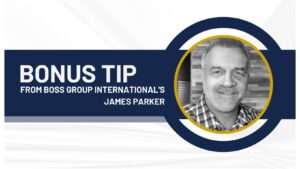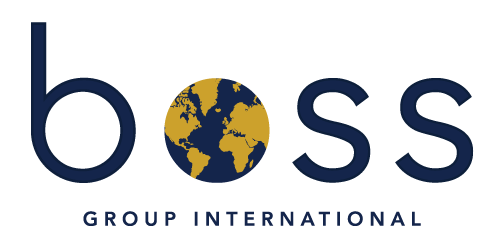How to Buy a Small Business with ROBS 401k
How can someone buy a small business with their 401K and not have to pay any penalty on the money they’re taking out. This is known as a rollover business startup, or ROBS 401k, commonly just called, ROBS.
Adam Bergman, founder and CEO of IRA Financial, is here to explain it all.
Adam, can you give us a 60-second rundown of the ROBS 401k?
The ROBS solution is the only legal way you can use your retirement funds to invest in a business that you are personally involved in. The ROBS involves two parts, a 401k and a C corporation. A new corporation sets up a C corporation, which adopts a 401k plan. You then roll over your IRA funds, tax-free, into the new 401k. The 401k then buys stock in the company in return for cash, so the cash goes from the 401k to the corporation. Ultimately, the corporation has the money to buy the business. Simple as that: Even if you’re short on cash, you have options for buying a business.
And this is all legal and okay with the IRS?
Yes. This is based on an exception in the tax code under 4975(d)(13). 4975(c) are the prohibited transaction rules: things you cannot do with an IRA. 4975(d) are the exceptions to the prohibited transaction rules. So yes, (d)(13) allows a 401k to purchase what’s known as qualified employer securities, which is C corporation stock. This was put in the tax code in 1974 to allow employees of companies that have a 401k to use some of their retirement money to buy stock. Over the last 25 years, it’s become a very common approach among small to mid-size businesses for using retirement money to buy businesses.
 With a 401k, you’re looking at a 10% penalty if you pull that money out early. So if you’re pulling out $50,000 of your 401k, you pay $5,000 right off the bat — and then you also have to pay taxes. If you’re in a 24% income tax bracket, that’s going to be another $12,000 on a $50,000 withdrawal. Whereas with the ROBS 401k, you can use that money penalty free and tax free.
With a 401k, you’re looking at a 10% penalty if you pull that money out early. So if you’re pulling out $50,000 of your 401k, you pay $5,000 right off the bat — and then you also have to pay taxes. If you’re in a 24% income tax bracket, that’s going to be another $12,000 on a $50,000 withdrawal. Whereas with the ROBS 401k, you can use that money penalty free and tax free.
You can also use the ROBS 401k for SBA loans, right?
Most people use the ROBS as a down payment on a transaction, specifically including an SBA loan. Most people are cash poor but retirement rich. (Because of course it makes sense to save in retirement plans rather than a taxable account, because of the power of tax deferral and compounding interest.)
Last year, my kid had a birthday party and we got one of those arcade trucks to come to our house. The lady running it said she just bought the business from someone else. I asked if she had any retirement money. She said, “Yes, I heard about ROBS too late. I had to take a taxable distribution that cost me $35,000.”
Business brokers should ask their clients if they have retirement money in an IRA or 401k. There’s another exciting tax benefit to ROBS: the 401k actually owns the company stock. So if you eventually sell the business for a profit and sell that stock, all the gain goes back to your 401k without tax, capital gains, and with ordinary income tax deferred.
On top of that, you're investing in yourself. Not only do you get to buy that business, you get to take a job, earn a salary, use your retirement money to in essence buy yourself a job. Plus, hopefully you have tax-free growth when you sell the business dividends from the C corp back to the 401k without tax. If you sell the stock in the C corp, all gains go back to the 401k without tax.
Which retirement accounts can you use for the ROBS 401k?
Almost every type of IRA can be used in this context: traditional IRA, SEP [Simplified Employee Pension] IRA, simple IRA, a former-employer 401k… The only IRA that cannot be used is a Roth IRA, because Roth IRAs cannot be rolled into a 401k.
One caveat: If you are under the age of 59.5 and you have a 401k from a current employer, you likely won’t have access to those funds, without what’s called a triggering event. When you ultimately leave the job, you’ll gain access to the funds.
Can you walk us through how the process works?
1. Work with a good business broker. The most important thing I always tell clients is to do their due diligence when figuring out what they want to buy. The success of the business has nothing to do with me. It’s going to have everything to do with you. Make sure you work with a professional who can help you buy the right business at the right price—like a business broker who knows what they’re doing, knows the business and industry, and who can give you good advice. It’s the same principle with your attorney and financial advisor as well.
2. You’ve decided what to buy, figured out the financing and made an offer. You expect to close within 30 or 60 days. Now you form a C corporation—not an LLC, not an S corp, not a partnership. Why? Because unfortunately, the tax code requires that stock is purchased. When President Trump lowered the corporate tax rate from 35% to 21% in 2017, C corps became quite tax advantageous.
3. Once the C corp is established, adopt the 401k. A company like mine, IRA Financial, can help set up the C corp. Primarily, we’d help you set up the 401k to see the rollover from either the pre-tax IRA or your former-employer 401k. The 401k buys the stock in the C corp. The C corp is a shell company: the new entity that’s going to buy the assets or stock of the existing business. (This could be an existing C corp, but more commonly it's a new C corp.)
What’s the minimum amount somebody should pull from their retirement account to make this happen?
You have three options:
1. If you’re under 59 and a half and have $30,000–$50,000 in retirement savings, you can take a taxable distribution: i.e. pay tax and a 10% penalty.
2. If you’re over 59 and a half and need $50,000 or less, set up a 401k plan for the business and do a loan out of the 401k. You can then borrow up to $50,000 tax-free and penalty-free to buy the business.
3. If you need more than $50,000, look at the ROBS. Think about either a taxable distribution or the loan feature—which I would recommend, because you’re getting tax-free use of the money and you’re paying your 401k back.
What kinds of businesses can you buy with a ROBS 401k?
Anything that doesn’t break the law and is a true business (i.e. not a real estate investment such as a motel, hotel, or storage facility). I’ve seen them all: bars to tea shops to adult entertainment facilities to amusement parks, to manufacturing.
What are the requirements for using the ROBS 401k to buy a business?
One rule for ROBS: In order to be a part of the 401k (and to use your 401k to buy the business), you need to be an employee of the business. For most people, this isn’t an issue – they’re doing the ROBS primarily because they believe in what they’re doing, and they were going to be actively involved in the business anyway. But be sure to take some type of reasonable salary from the business group and work 1000 hours a year in the business. On average, that’s about 20 hours a week. As long as you’re paying tax on your compensation, the IRS doesn’t care if you’re clocking in or clocking out.
How long does this process actually take?
I would say a couple of weeks. I can do the paperwork to set you up with a 401k in a day. It’s more the movement of cash that takes time. If you have an IRA at Charles Schwab or Fidelity or Mass Mutual, it take 3 to 10 days to move the money from that IRA to the new 401k. Generally, I would say you’ll have cash in hand, ready to go, in 14 to 20 days.
How much does this all cost?
The setup fee is generally about $25, including all the miscellaneous corporate documents. After that, you’re looking at anywhere from $1000 to $1500, depending on how many employees you have. But keep in mind that this would be a tax-deductible business expense. It’s then about $1500 a year to keep things up, as far as an annual filing goes.
How often do you do an upfront evaluation on the business?
Generally, if you're using ROBS you’ll want to get a business valuation. Why? Because the 401k owns stock in the business. Your 401k account includes stock it owns of the corporation, so we need to value that in order to fulfill the 500. We have a variety of very inexpensive appraisers that could value the business for anywhere from $500 to $700 a year, plus an additional fee for the evaluation letter.
It’s really important that the filing happens because the IRS will nail anyone doing ROBS improperly. You’ll need to engage somebody like Adam upfront and every year to make sure I’s are dotted and T’s crossed.
Can an existing business owner use their 401k to expand their operation or open up another location?
Yes, you can. If you already offer a 401k to employees, you may need to amend the plan to allow for the purchase of qualified employer securities (the C Corp stock). One caveat is that if you have other employees in the business, you need to offer them the same rights that you would receive. That means you have to give them the same right to buy corporate stock at the fair market value your 401k would buy it at.
Adam, did we miss anything that business brokers and individuals looking to buy a business might need to know about ROBS?
The good news is that you don’t have to know much about ROBS. An expert firm will teach you everything you need to know. We’re a TPA, or third party administrator. We can administer for any business, from small plans covering a few employees to police departments and fire departments. The client will not have to do anything with the IRS. The only thing the client needs to do is provide a business evaluation. Work with the right people, buy the right business and the rest will take care of itself.

